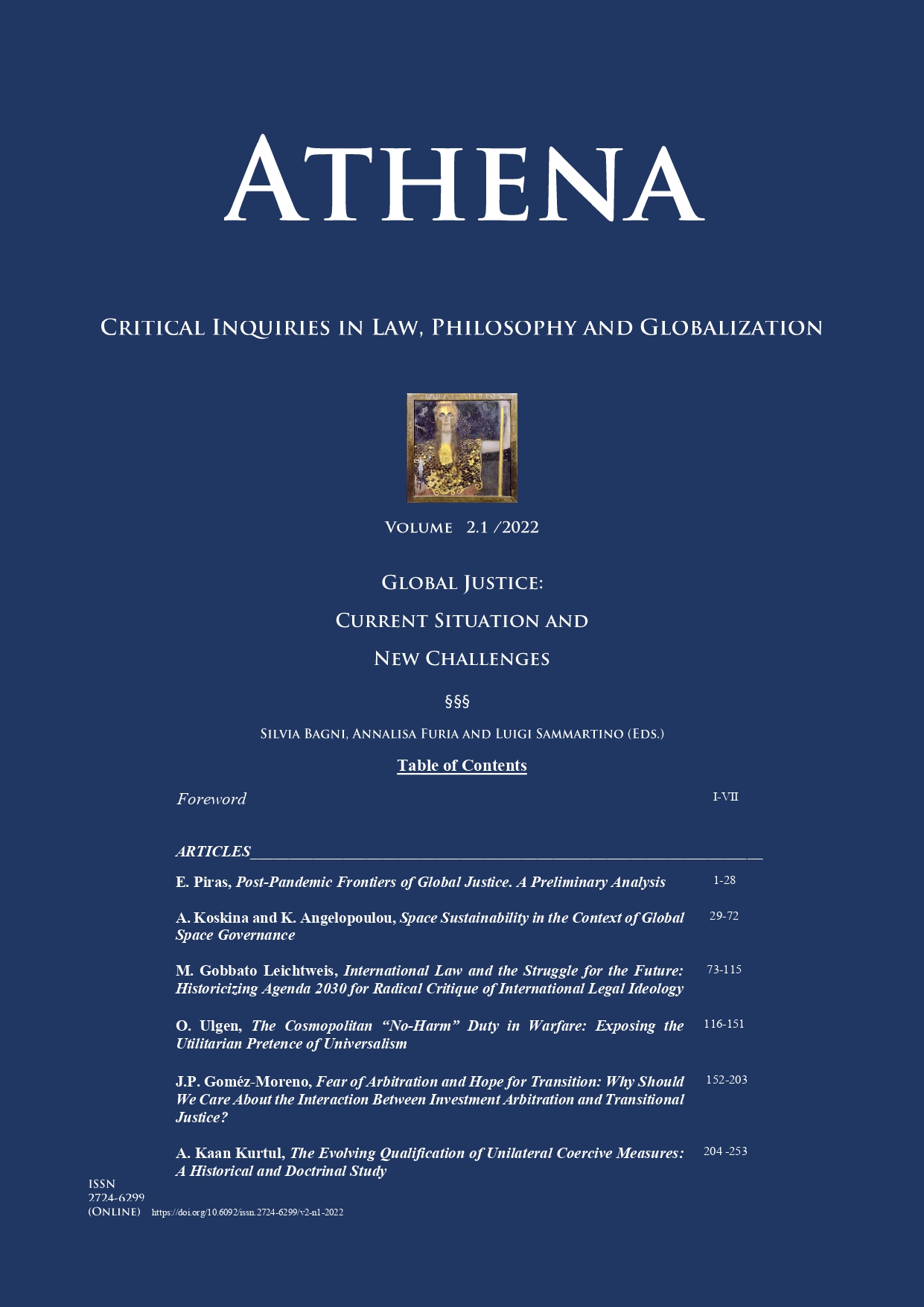Fear of Arbitration and Hope for Transition: Why Should We Care About the Interaction Between Investment Arbitration and Transitional Justice?
DOI:
https://doi.org/10.6092/issn.2724-6299/13761Keywords:
investment arbitration , transitional justice, post-conflict, lasting peace, reparationAbstract
Investment arbitration has experienced an exponential growth in the past years. Recently, there has been abundant discussion on how it influences matters of public policy, with strong criticism referring to its ability to restrain state regulatory capacity, specifically through the freezing of public authorities for fear of investment claims. Among these issues, a key consideration, yet one still under-explored, is how investment arbitration interacts with transitional justice. Considering that building a long-term and lasting peace is the overarching obligation of states coming out of war, this field of study cannot be understated. This paper aims to study the relationship between investment arbitration and transitional justice. To do this, it analyzes how core principles of transitional justice relate to key features of investment arbitration. The analysis concludes that, while investment arbitration and peacebuilding are not fundamentally opposite fields, the characteristics of each system may result in contrast with the other. Further, if this tension is not addressed by public policy, investment arbitration may become an obstacle for the implementation of measures necessary to secure transitional justice for victims of armed conflict.
Downloads
Downloads
Published
How to Cite
Issue
Section
License
Copyright (c) 2022 Juan Pablo Gómez-Moreno

This work is licensed under a Creative Commons Attribution 4.0 International License.





